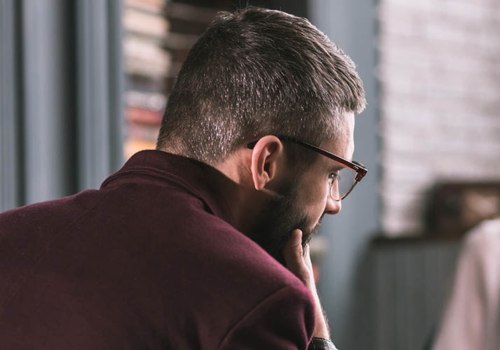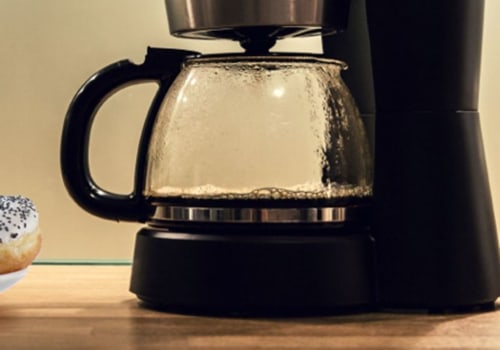It can make youreevaluate your relationship with alcohol if you date a sober person. Whensomeone is in addiction recovery, this is very crucial.
It can make youreevaluate your relationship with alcohol if you date a sober person. Whensomeone is in addiction recovery, this is very crucial. In that scenario, youshould challenge yourself and have a conversation with your partner about thosechallenges. Dating is never simple, and making recovery a factor could makeeverything considerably more difficult.
Always keep in mindthat how someone chooses to respond to your recovery reveals more about themthan it does about you. You are doing everything in your power to put yourrecovery first as long as you consider how you want to handle dating whilesober and have a strategy for dealing with potential partners. Come to our BlueLight conference on working with extremely vulnerable, dependent drinkers onOctober 18 if you can.
A person's perspectiveon the world alters as a result of a substance abuse issue, and recovery has asimilar effect. Addiction to drugs or alcohol may drastically alter a person'slife, thus restoring their life is essential to successful rehabilitation. Therealities and guidelines of sobriety following addiction are even more obviouswhen it comes to interpersonal connections. A sober dating manual is crucial tocomprehending how matters of the heart change, whether you're a client or acompanion.
In the wake of theirrecovery, many treatment programs actively or passively discourage theirparticipants from engaging in romantic or sexual relationships. In The Fix, a33-year-old guy who had been clean for eight years follows the advice of his AAsponsor and forgoes dating for six months.
Dating while recouping
Although dating duringthe early stages of sobriety is not expressly forbidden by AlcoholicsAnonymous' official policy (as outlined in the Big Book), refraining fromrelationships is an important topic of discussion. A sex coach who spoke to TheFix notes that drug and alcohol misuse changes how people view themselves andthose around them; by the time they are sober, they have no idea who they are.
It is nearlyimpossible to establish stable, healthy ties with other people without thatfeeling of self. Bridges that were damaged by the addiction can be repaired inlarge part through therapy and aftercare assistance, but dating takes much moreeffort (and time) than merely rekindling a friendship. According to the sexcoach, those in recovery must spend a lot of guided time getting to knowthemselves to begin a romantic or sexual relationship, particularly who theyare when they don't have a drink in their hand and when the person they areattracted to is not the type of person they would have been interested induring their drinking days.
These epiphanies anddiscoveries don't happen quickly, like within a few weeks (or even months). Asa result, it is generally accepted that those in recovery shouldn't date forthe first year of their sobriety. The 33-year-old man returned to the datingscene as a fully devoted and involved participant in his treatment programafter avoiding it studiously for the first six months. But his initial attemptsat sober dating were terrible; he spent five years dating "messed up speedfreaks." Eventually, he realized that, even without a drink or drug in hishand, the allure of hanging out with people who were using drugs themselves wasalluring — even, to use his words, "hot."
Why is there such atremendous pull?
Being sober may bequite challenging, as anyone in recovery will attest to. It can mean missingout on social events, and having to face life's difficulties and hardshipswhile abstinent, and it can also mean being by yourself. A 26-year-old formerheroin addict is quoted by The Fix as noting that "becoming sober islonely."
People who share yourinterests are frequently sought after as the apparent loneliness cure. There isan unconscious identification with other addicts even in persons who havestopped using and continuously follow the program; to the point where they seekout romantic or sexual partners with drug misuse issues (either borderline orfull-blown).
A psychological statewhen addiction is still too powerful of temptation can justify anything, includingstaying with a partner (or numerous partners) who use drugs. This feeling ofrelapsing without really doing it is part of what makes drug use so alluring.
Furthermore,"regular" sober dating could appear dull in comparison. A recoveringindividual can still vividly recall the drama and stress of a relationshipimpacted by substance misuse. Despite the arguments and breakup threats, beingin that kind of relationship had an edge and provided excitement. Thatsensation, which is absent from a sober life, has the potential to be a drug inand of itself (and especially not in sober relationships).
Additionally, somepeople find it liberating (or even relieving) to date someone who alsostruggles with substance misuse since it removes them from the role of the"patient" in the relationship. For once, the focus is on the otherperson, whether it's favorable or unfavorable. Without drinking a drop, theperson in recovery can partake in all the good and terrible that comes withthat area.
Codependency Risk
People should avoiddating during the early stages of their recovery for the same reasons; theyshould also avoid going to places and attending events that might prove to betoo challenging (like bars, nightclubs, certain parties, and sports events, etc.).
The alternative mayinvolve leaving early, being alone yourself, or being perceived as the"boring" one, but it involves flirting with disaster. People who arein recovery need to take their recovery seriously, which means they shouldn'tget too fixated on finding a mate.
Codependence, which issometimes referred to as "relationship addiction" since suchrelationships are typically one-sided, abusive, and emotionally damaging - muchlike the original drug abuse problem - is bred by rushing into a relationship.A person in recovery should also avoid dating other individuals in recovery asan additional measure of safety.
It could be dangerousto combine the sensitivities and weaknesses of other program participants.According to Psych Central, "recovering addicts need support," butwhile encouragement from others on the same path is priceless, the line betweenassistance and unhealthy dependence blurs quickly. Relapse is always apossibility for everyone receiving treatment. Being intimately engaged withsomeone for whom that possibility also exists considerably enhances thelikelihood that the two will relapse into their old patterns, only this time,they will do so jointly.








Leave Reply